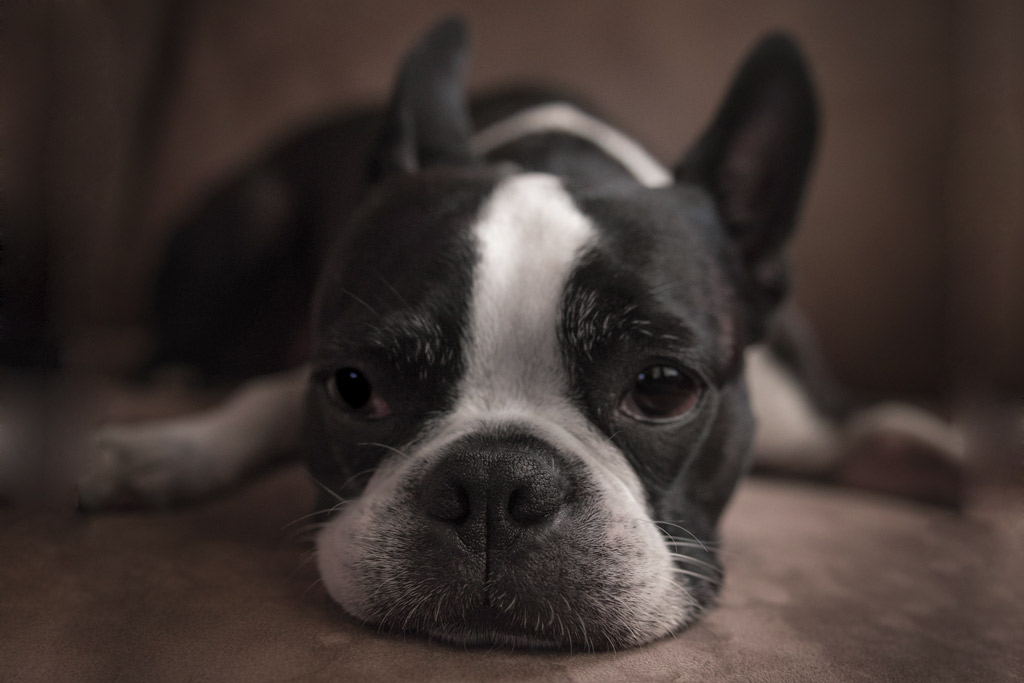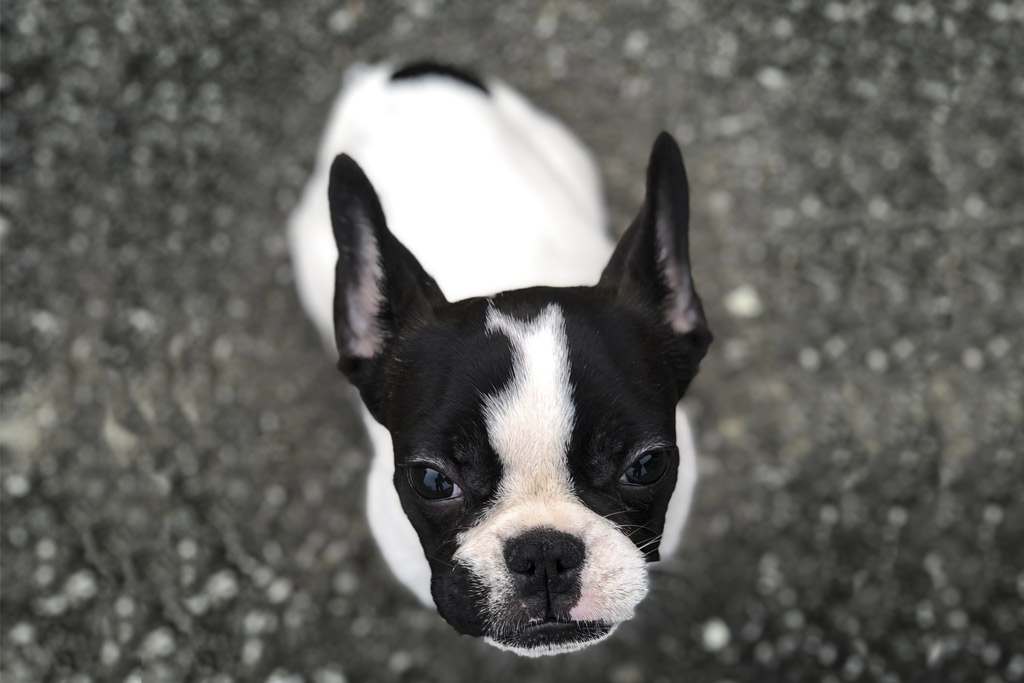
The American Gentleman has a reputation of being a quiet, well-mannered dog, and are also known to they are not big on barking. But as Boston Terrier parents know very well, they have a wide range of curious sounds.
Why do Boston Terriers make weird noises? Due to their short noses and shape of their muzzles (characteristic of the brachycephalic breed), Boston Terriers can make all kind of noises while awake and sleep.
Continue reading to find out what noises Bostons make!
Why Do Boston Terriers Make Weird Noises?
Brachycephalic is a term that describes the short-muzzle and flattened face of a dog; “brachy” means shortened and “cephalic” means head. The cause is genetic mutations that change the way the bones in the skull grow, resulting in a shorter, wider skull shape.
As a result, these dogs can suffer from many health problems that relate to their body shape:
- Eye problems.
- Skin problems.
- Spinal problems.
- Birthing problems.
- And breathing problems.
Brachycephalic breeds include:
- Pugs.
- French Bulldogs.
- English Bulldogs.
- Boston Terriers.
- Shih Tzus.
- Pekingese.
- Affenpinschers.
- Cavalier King Charles Spaniels.
- Lhasa Apsos.
- Griffon Bruxellois.
- Bull Mastiffs.
Bostons, because of the size and shape of their muzzles, can experience breathing problems. For that same reason, they can make a variety of sounds, including snoring, grunting and snorting.
Those short muzzles can also cause them to take in a lot of air, which can mean a lot of gas. Yes, they are big on farts too!
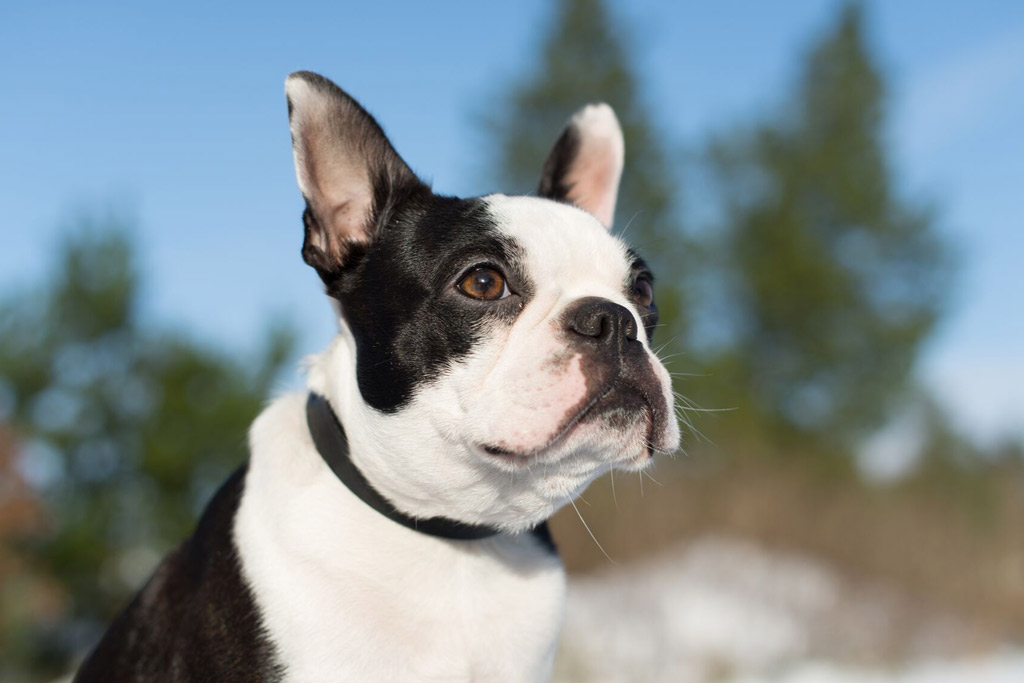
What Noises Do Boston Terriers Make?
Boston terriers have a wide range of sound repertoire: they breath loudly, snore, snort, grunt, fart, howl, scream, squeak, gag…
#1 – Reverse Sneezing
Reverse sneezing is actually not a sneeze and is more common in dogs with short muzzles and elongated soft palates, such as Boston Terriers.
It occurs when your Boston’s soft palate gets irritated and causes a throat spasm, which can be rapid or prolonged inspirations that sound like snorts. During the reverse sneeze episode, the airway narrows making it hard for your dog to breathe.
These spams leave dog parents frantic and helpless, myself included. However, there’s no cause for panic since reverse sneezing spasms are often over quickly with no lasting ill effects.
Insider Tip: To help your Boston during these spasms, you can gently stroke his throat in a downward motion to encourage him to swallow. Some dog parents also suggest covering the dog’s nostrils with your fingers for a few seconds, but I personally never tried this before.
Remember, the calmer you remain, the calmer your Boston is likely to be. Dogs catch on our mood easily, so keeping your cool (even if this is difficult) helps your pooch!
Causes for Reverse Sneezing
Your Boston Terrier’s reverse sneezing can have a number of causes, including:
- Allergens, such as pollen or dust mites.
- Perfumes or scented candles.
- Cigarette smoke.
- Mites in the nose or throat areas.
- Viral infection.
- Anxiety.
- Overexcitement.
- Pulling on the leash (use a harness instead of a collar).
Finally, you should mention these spams to your vet on your dog’s next check-up. If they become more frequent, I suggest you go to your vet as soon as possible to be on the safe side.
Occasionally reverse sneezing is a symptom of larger problems such as allergies, sinusitis or other respiratory problems. In severe cases, some dogs might need surgery to remove the soft palette.
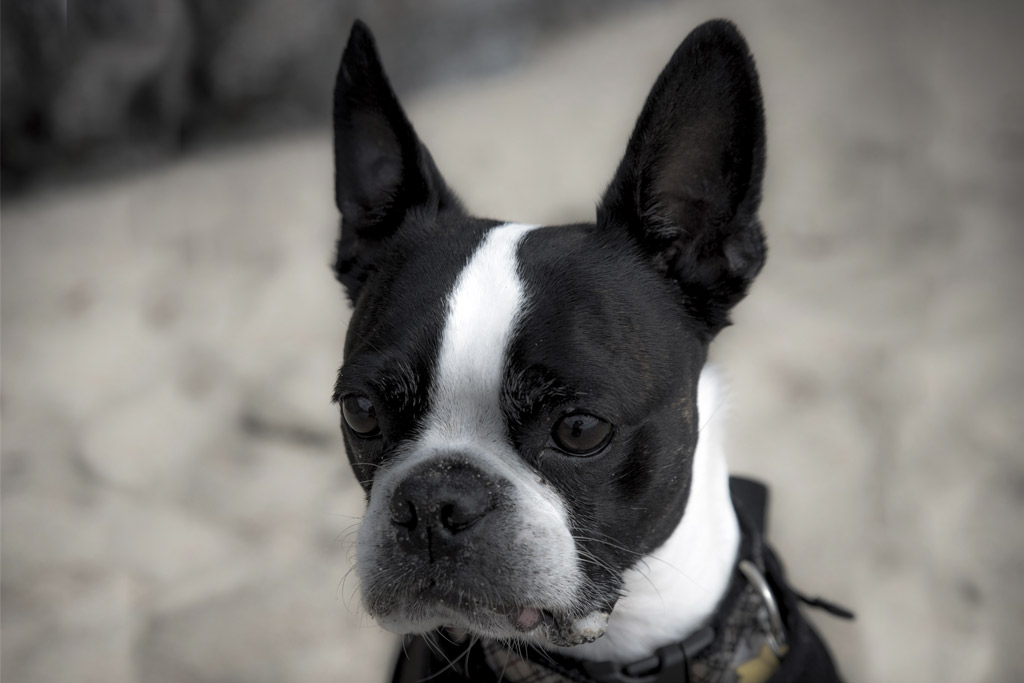
#2 – Sleep Barking
You have probably noticed your pooch quiver, make leg twitches, or even growl when sleeping.
Bostons, like many dogs, can make noises like barking and whining while they sleep because they are dreaming.
Studies show that humans, dogs and all other mammals experience rapid eye movement (REM) sleep, the sleep stage during which we experience dreams.
When your pooch is in REM sleep, you can see twitching of the facial muscles and, as the name suggests, rapid movement of the eyes. This might happen whether your dog is dreaming or not.
Insider Tip: If your Boston is having a noisy dream, you don’t need to step in or touch him. In fact, it’s best to not wake up your dog while he’s asleep or dreaming. There are two reasons for this:
1- Your pooch needs that REM sleep.
2- He can be confused, upset, and even lash out if he’s startled awake.
If you ever need to wake your doggy, use a gentle voice to bring them back to Earth.
Did you know your Boston Terrier can also have nightmares? In the How Smart Are Dogs? And 9 Other Facts To Know blog post, you will discover some new, interesting facts about your furry friend and the most frequently asked questions by other dog owners like you.
#3 – Sneezing
This time sneezing means just that; a dog sneeze is the same as a human sneeze.
There are plenty of reasons for this involuntary expulsion of air through their nose and mouth, including:
- Something is stuck in their nose, like bits of grass or dirt.
- Canine flu.
- Upper respiratory infection.
- A response to pollen, dust, smoke, perfume, and other allergens.
If the sneezing is excessive or there are other symptoms, such as a runny nose or eyes, check with your vet.
#4 – Snoring
Most Boston Terriers snore when they’re sleeping due to their facial structure.
Also, snoring has to do with your Boston’s sleeping position. Back sleepers, in particular, are prone to snoring.
However, if your dog is not prone to snoring or his snoring has increased considerably, it could be because of:
- A cold.
- Upper respiratory infection.
- Allergies.
- Obesity.
Insider Tip: Some dog parents have managed to reduce their dog’s snores by using a round bed. A Fur Donut Bed or Cave Bed (you can find them on Amazon) are great for Boston’s snuggling habits! Their shape doesn’t encourage back-sleeping and dogs tend to get curled up in them instead. However, I had no such luck on this with Tootsie, the female pug I fostered. She’s a big snorer and there was no changing that!
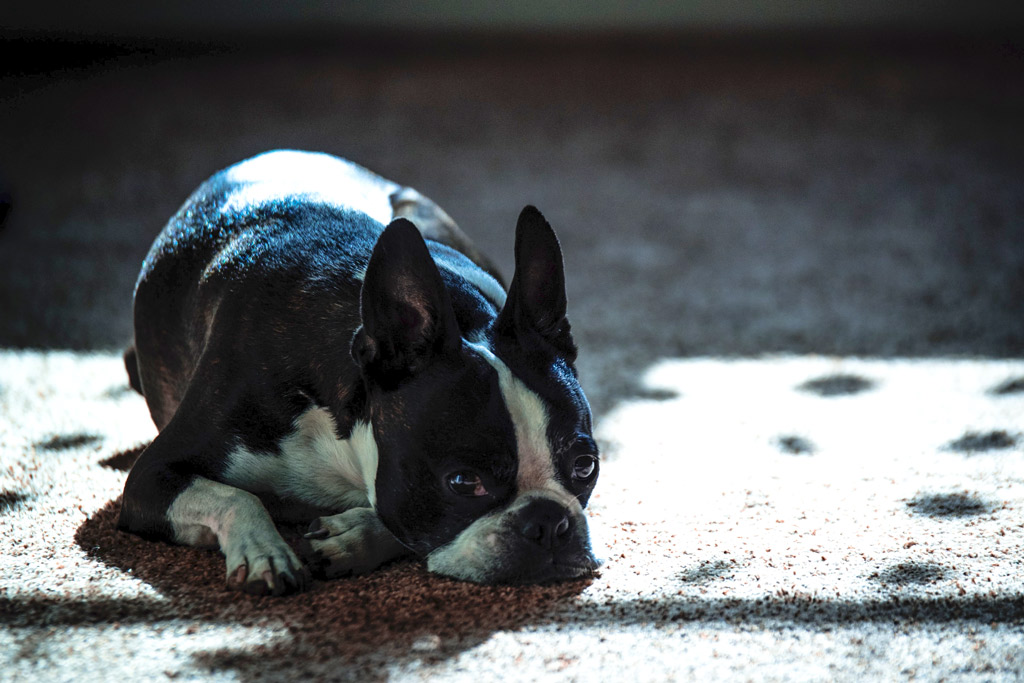
#5 – Snorting
Bostons are prone to grunting and snorting too.
When snorting, your dog expels air out of the mouth and nose. But, unlike a sneeze, snorts are done on purpose.
Snorting often happens:
- As a reaction to something irritating your dog’s nose, like an allergen or a bit of dirt.
- Or it’s caused by a virus or sinus infection.
#6 – Gagging
If your Boston Bull Terrier is gagging, here are the potential causes:
- Choking on something*.
- Kennel Cough (dry coughing followed by a gagging sound).
- Sinus or upper respiratory infection.
- Parasites, such as roundworms.
*Note: If your dog is chocking, you can:
- Try to remove whatever is in your dog’s mouth with a sweep of your fingers. But be careful not to get bitten or push the object further down.
- If that doesn’t work, you can use a pet version of the Heimlich manoeuvre:
- Hold your dog with their head facing down.
- Make a fist and put it under the bottom ribs.
- Push up several times to expel the object.
- Alternatively, a hard blow between the shoulders blades can also help in some situations.
If your pooch is frequently gagging, it’s best to take him to your vet.
